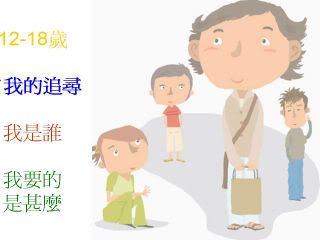成長
人都會長大,但不一定會成長。成功是我的自信,挫折是我的良師,萬事都互相效力,叫愛神的人得益處。首先恭喜我的小女兒所寫的書『Taiwan Tiff』出版了。
我家的二丫頭馬上要過十九歲的生日了,她生於美國,六歲去台灣,十六歲又回美國讀書。
這是她在她15,6歲時動筆寫的故事書。
書寫好後,因正趕上高中畢業,接著又是選大學,入學。。。直到今年的暑假才抽出時間做最後的編輯,尋找出版商出版。
香蕉,外黃內白。
在海外人們常拿它來比喻生長的西方的遠東的孩子們。
我家的兩個ABC(American Born Chinese=在美國出生的華人)當然也是類屬香蕉孩子的行列。
有別於一般的ABC,我的孩子們在上小學時隨著我們一起從美國搬去了台灣。
鑒於許多的原因,我們在孩子們的教育取向上,選擇了台灣的國際學校。
這樣就使得她們雖然地處於台灣,卻又生活在美國文化的環境中。
在台灣生活的十年裏,兩個女兒基本上是被LABELED 為“美國人”。
然而,當孩子們每年暑假回美國讀Summer school , 特別是在最後二年半回美國讀高中時卻又被學校和同學們LABELED 為Chinese kids......
在這樣不同文化的衝擊下,我們女兒們也和其他的高中生一樣,步入了青少年。
青少年是一個人從孩童轉化為成年人的特殊階段。在這個階段裏,孩子們開始了TA們人生的思考。 
TA們原本被從父母那裏承接的價值觀,世界觀。。。這時就都被扔了出來,他們不在是父母的延伸“品”他們在尋找,尋找並建立;經過自己的驗證屬於自己的思想,看法,價值觀,世界觀。
一般的孩子在步入青少年時,最困擾的就是Identity的問題。
而香蕉孩子們因自己特殊的背景,使得他們在Identity的問題上凸顯出更多的問題和麻煩。
『Taiwan Tiff』就是一本透過許許多多發生在台灣和美國的有趣的小故事,來講述在東西方不同文化下,香蕉孩子如何尋找屬於自己的Identity。
有別於“大人們”寫的書,『Taiwan Tiff』是一個青少年,站在孩子的立場,角度來看並記錄在她的身邊所發生的事,並以青少年的筆調將它們呈現在讀者的眼前。
下麵是我摘錄的二段書中的內容。
摘一
香蕉孩子在Identity上的煩惱。
摘二
是作者在美國讀高中時,上世界曆史和社會學(Social Studies)課時發生的故事。
如果你有青少年的孩子,建議你看完這段,經管它的篇幅有一點點的長。
透過這段故事,我們多少可以了解一些孩子們在課堂上,在學校裏所遇到的讓他們感到不舒服的事情,和這些事對孩子的衝擊和影響。
老實說,看完這段,我才明白,東方孩子在美國的環境中所麵對的Issue 一點都不比我們成年人少。
在成年人的世界裏,人們在種族文化等議題上,還懂得婉轉與修飾。起碼讓我們在麵子上過的去。
可孩子就沒我們那麽幸運了。他們麵對的是直接的甚至是帶有攻擊性的。。。
看到女兒如何麵對“現實”,從“尷尬,羞辱,憤怒”到重新調整,寬恕,平靜。。。 這一連串的心路曆程,讓我為之而動容。
摘一:P.43
I was constantly being rudely awakened by my dual cultural identity. In the United States, I had to endure the endless Asian jokes. In Asia, I felt equally unaccepted and could not shake my Americanization as hard as I tried.
摘二:P67-69
This feeling of alienation reached its peak as I sat in World History once, jotting down notes on an overview of world religions my classmates presented. Most of the presentations were pleasantly entertaining. Buddhism was not.
“Buddhists meditate all the time,” a girl said jollily, “like seriously, all the time. They’ll see any statue and they’ll start meditating.”
I cocked an eyebrow. Not funny. What was truly appalling, however, was that the class found her snide comment humorous. To say the least, if she had said the same thing to a group of intense Buddhists, she may be locked up. Okay, perhaps not that dramatic. But Buddhist people would be seriously unhappy with her. I marveled at the large goofy smiles imprinted on the faces of those around me. These people were fools! I was no Buddhist, but as someone who had lived in a country whose major religion is Buddhism, I fostered religious tolerance and cultural sensitivity. I put down my pen and started to wonder what my class would say if I told them Catholics prayed at the site of every crucifix.
After several weeks, I sat in on a large group seminar regarding China’s communist history. Our teacher introduced the seminar saying, “Kids, this is the dumbest history I’ve ever heard of, and trust me, I know a lot of history.” She then proceeded to insult the Chinese and the Cultural Revolution, elaborating on how Chinese people were stupid for burning weak metal in attempt to make steel. She touched up on the Tiananmen Square protests of 1989, saying, “The youth in China wanted democracy, but Mao Zedong was so paranoid that he sent in troops. So police killed a ton of the kids. Moving on…”
What? Was that all she cared to say about the Tiananmen massacre, the revolutionary event when students died for their determination to change the government? Was all she could say two lousy nonchalant sentences? I would probably be in a casket if I ever said, “Martin Luther King wanted equal rights for African Americans and whites but people got mad. Someone killed him and he died. Moving on…”
She proceeded to show a heart-wrenching video of the devastation Chinese people suffered as a result of Mao’s rule. Speakers in the video reminisced over how their students betrayed and paralyzed them, and how their own family members jailed them for alleged lack of loyalty to Chairman Mao. As I sat in silence and deep sorrow, watching the past of my mother’s nation and the story of my own relatives, the entire auditorium roared with laughter. Perhaps the people on the film looked funny; perhaps their eyes were stereotypically slitty. Perhaps they stuttered as they spoke and could not enunciate English words perfectly. The entire auditorium was shaken in a jiffy, and for the first time, I fully grasped two concepts.
One was the American arrogance and ignorance my dad always had told me about that I used to always deny. He said, Americans can be nice, but that does not make them humble. Previously, I deemed him a racist, but now I noticed he was merely trying to tell me the truth and prepare me for the salty tears that filled my eyes that day in the auditorium. I felt so betrayed. For years, I naively believed America was an understanding, grand nation that accepted all. Yet, now, America, I witnessed, not only misunderstood, but readily laughed in the face of half of my Asian identity derived from my mother. Although I grew up in Taiwan, I had spent weeks and even months in China from family vacations. China was a part of my experiences, a part of my blood. Tears rolled down my cheeks, and I wanted to scream into a microphone on stage, “What is so incredibly funny about this video? What hilarity do you see in the Tiananmen Square massacre? Are you all simply inhuman, or too damn ignorant? I am ashamed to be American. I am ashamed to live on the soil of a country that sarcastically and improperly educates world history, I am ashamed to wear the clothes you sell in your stores, I am ashamed to speak your language, and I am ashamed to be friends with some of you who I know are laughing your heads off. How do you find the most heartbreaking moments of Chinese history so hilarious? Must you laugh? What if I showed you a clip of the 9/11 attack and laughed? How would that make you feel? How would that twist and break and shatter your heart?”
The second concept I started to grasp was of inhabiting a roomful of people yet feeling completely alone.
Now this is not to say that my experiences in Nebraska were a constant reflection of bigotry and racial ignorance. Fortunately, years later, I was relieved to find that this attitude was not shared amongst the majority of educators at my school. I had some other great teachers at Westside. At the same time though, this kind of cultural idiocy was not an isolated case.
Tiffany在書中歲月的小檔案:
1990年生於美國麻州,並讀完幼稚園
1996年搬到台北並開始上小學
2001年上中學
曾擔任台北美國學校的 National Junior Honor Society Vice President
2006元月轉來美國一間擁有2000多學生的高中繼續讀書
2006年春當選 Student Forum Vice President
一年後當選為 National Honor Society President
在美國的二年半裏她為學校建立了 High School Paper Recycling Program
又於2008年畢業前促成她們學校和天津市實驗中學的姐妹校。雙方的學生和老師已開始了互換和交流。
PS:如果你想購買此書,請打入這個LINK:
http://www.lulu.com/content/paperback-book/taiwan-tiff/7226289
八月底後你也可以直接在AMAZON上購買。







謝謝姐姐,
知道自己是誰,的確是人生的一個重要議題,我也很高興她能“走”出來。
問好!
收藏!
謝謝飄MM,
腐敗中還惦記著俺家二丫頭,感動ING。。。
你啥時回比利時?看你在中國玩的有點樂不思蜀。。。
我忽然想起,你離家這麽久,那你家的蘆花有人照顧嗎?
這書要收藏~~~~~~~~~~~~~
3姐啊,我先要訂購5本
我們這可都是原始股董們啊
得意一下。
謝謝閑人,
她是我生命中的陽光!
從小她就很努力,一直在挑戰自己,懂事,樂觀,隨和。
最難的的是此書基本上是在她十一年級寫完的,而十一年級又恰好是高中生最忙,壓力最大的時候。。。
謝謝你的回帖,問好!
謝謝您,
香蕉孩子的成長摻雜著許多的壓抑和挫折感。有時可能比我們成年人遇到的還多。
我真的很欣慰孩子的成熟和樂觀。
再次的謝謝您,我會轉告她您對她的稱讚。
祝,
周末愉快!
謝謝分享,我和您一樣,聽到了孩子們發出這樣的聲音,為她驕傲自豪。
謝謝MM,
我要說明的是:這既不是一本香蕉孩子在IDENTITY方麵的“理論”書也不“生活指南”。
它是孩子用自己的語言說自己的故事。
在書裏有好笑,溫馨的故事,也有青少年偷雞摸狗,調皮搗蛋的經歷。
有歡笑,有流淚,更有讓孩子們去思考的Meaningful的問題。
當然還有一些有關媽媽,爸爸的故事。。。。。。
孩子可能會喜歡看,但父母??我就不好說了。